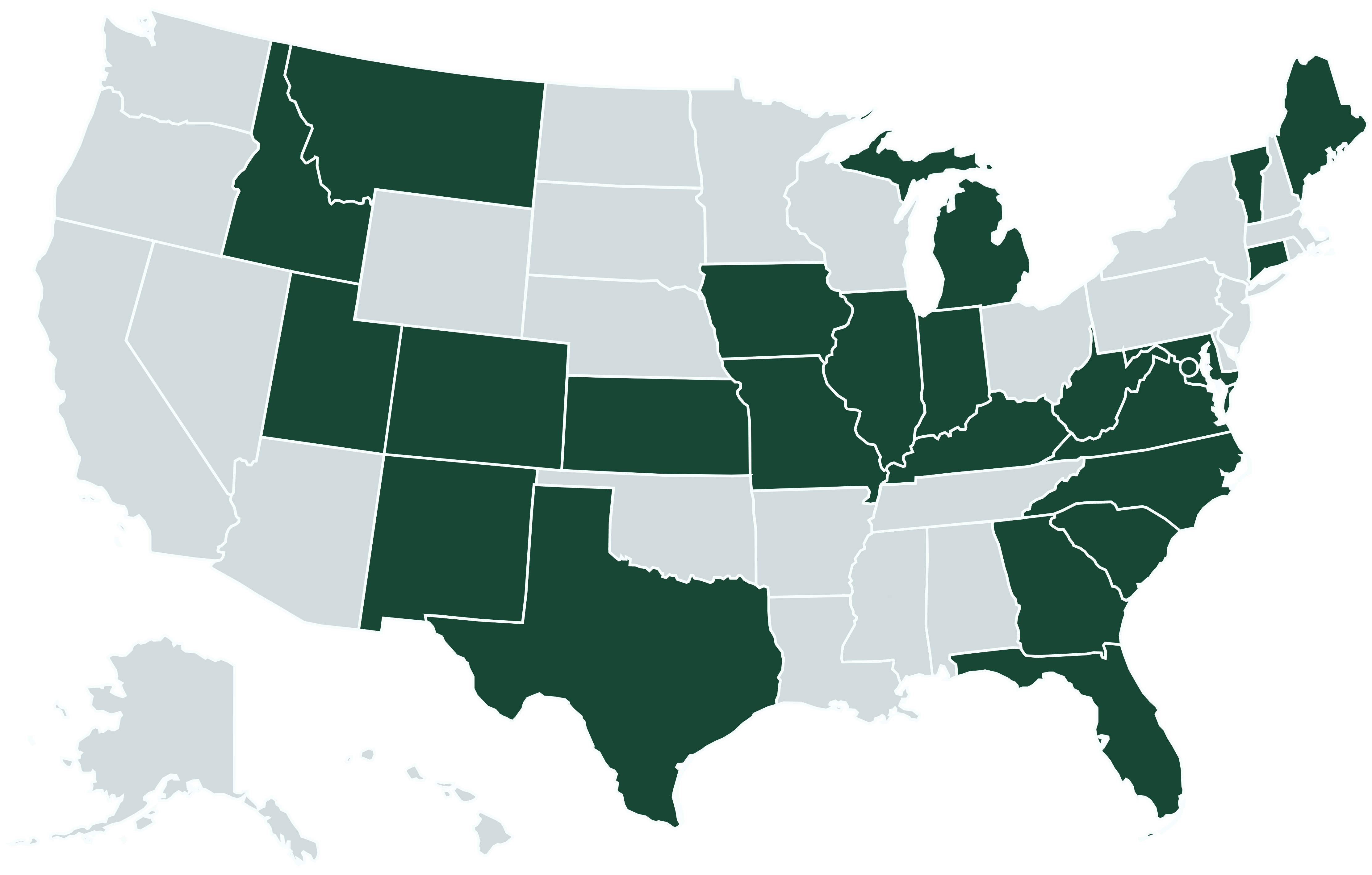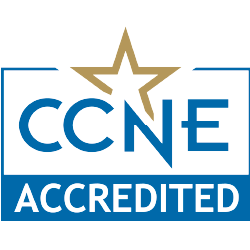Promote Pediatric Health & Wellbeing
The Doctor of Nursing Practice - Pediatric Nurse Practitioner track (online DNP PNP) prepares actively practicing RNs to provide primary and acute care to pediatric patients in a variety of environments.
Two Tracks Available
-
• Address primary healthcare needs of children and adolescents by utilizing patient-and-family centered care within the context of the family unit
• Build knowledge on the normal growth and development, health promotion, health maintenance, and management of children from birth to adolescence
• Understand the health promotion, health maintenance, and management of common pediatric health issues
• Learn how to identify and address potential and actual chronic health needs of pediatric patients
• Examine the relationship between genes, environment, and health in a pediatric context -
• Address primary healthcare needs of children and adolescents by utilizing patient-and-family centered care within the context of the family unit
• Build knowledge on the normal growth and development, health promotion, health maintenance, and management of children from birth to adolescence
• Understand the health promotion, health maintenance, and management of common pediatric health issues
• Learn how to identify and address potential and actual chronic health needs of pediatric patients
• Examine the relationship between genes, environment, and health in a pediatric context
-
The requirements to apply for the online BSN-DNP PNP program are:
- BSN from a regionally accredited school of nursing
- 3.0 cumulative GPA
- Courses taken pass/fail will not be eligible for admission
- One (1) year of full-time experience as a practicing professional nurse caring for pediatric patients by the first day of class
- Current unencumbered RN license
- Complete an acceptable written personal statement
- Three letters of recommendation, as follows: one must be from an immediate supervisor, one must be from a peer nurse, and one must be from an MSN, DNP, or PhD-prepared nurse
- No GRE or MAT Required
Post Master's DNP pathway - coming soon
-
-
The requirements to apply for the online BSN-DNP PNP program are:
- BSN from a regionally accredited school of nursing
- 3.0 cumulative GPA
- Courses taken pass/fail will not be eligible for admission
- One (1) year of full-time experience as a practicing professional nurse caring for pediatric patients by the first day of class
- Current unencumbered RN license
- Complete an acceptable written personal statement
- Three letters of recommendation, as follows: one must be from an immediate supervisor, one must be from a peer nurse, and one must be from an MSN, DNP, or PhD-prepared nurse
- No GRE or MAT Required
Post Master's DNP pathway - coming soon
Clinical Placement Support
Clinical placement is a required educational component of Baylor’s online nursing programs. The hands-on learning, supervision and applying theory into practice prepare you for your future role in the field. Many students also find potential employment opportunities at their placement site upon graduation.
01
How Does This Benefit You?
At Baylor, we believe you are only as successful as your training—that’s why we collaborate with our students to identify and secure sites and preceptors for all clinical rotations. Our staff will sort through the logistics of clinical placement so you can focus more on coursework and building competencies as a nurse.
02
How Does the Clinical Placement Process Work?
As a newly enrolled student, you’ll partner with our clinical team to determine unique placement needs. We’ll collaborate with you to identify placement opportunities, including locating and securing a quality site and preceptor during your program. You’ll be responsible for several preparation tasks, including filling out forms, passing a drug screening, background check and other necessary documents.
03
What is the Placement Experience Like?
During your placement experience, you’ll have access to faculty and resources to support you on and off-site, including mentorship and guidance for procedures, patient interactions and proficiencies. At the end of your rotation, you and your preceptor will review requirements and complete any surveys. You may receive new details for your next clinical experience if you have multiple rotations.
04
What Can I Expect from My Preceptor?
Your preceptor is your on-site role model and will help you develop as a nurse during your clinical rotation. They will focus on helping you bridge gaps between theory and practice, orientate you to the practice setting, help you plan clinical assignments, provide 1:1 supervision, give daily feedback and complete required paperwork on your behalf.
Do I Qualify?
See below for the states in which we accept applicants for the online DNP-PNP program:
- Colorado
- Connecticut
- District of Columbia
- Florida
- Georgia
- Idaho
- Illinois
- Indiana
- Iowa
- Kansas
- Kentucky
- Maine
- Maryland
- Michigan
- Missouri
- Montana
- New Mexico
- North Carolina
- South Carolina
- Texas
- Utah
- Vermont
- Virginia
- West Virginia
The online DNP-PNP program offers primary and acute tracks to prepare versatile, specialized nursing professionals for a variety of care environments. The advanced curriculum focuses on primary healthcare needs of children and adolescents, utilizing patient-and-family centered care within the context of the family unit, and complex acute, critical, or chronic illness for pediatric patients.
Designed to prepare the pediatric nurse practitioner student to address the primary health care needs of children and adolescents by utilizing patient-and-family centered care. The focus is on normal growth and development, health promotion, and health maintenance of children from birth to adolescence, within the context of the family.
Designed to prepare the pediatric nurse practitioner student to address acute and common health care needs of children and adolescents by utilizing patient-and-family centered care. The focus is on health promotion, health maintenance, and management of acute and common health issues in children from birth to adolescence, within the context of the family.
Designed to prepare the acute care pediatric nurse practitioner student to identify and address potential and actual health care needs of the acutely ill or injured child. The focus is on clinical judgment, decision-making, and procedural skills for delivering complex acute, critical, and chronic health care to ill or injured children, within the context of the family.
Testimonials
Baylor Nursing By The Numbers
Here are some of the most frequently asked questions regarding Baylor University's Online DNP-PNP program
- BSN holders typically complete our DNP program in three (3) years and four (4) months, skipping the Master’s degree program entirely
- MSN holders typically complete our DNP program in 18 to 24 months
Please note that actual length to program completion will vary depending on the student's background and selected track.
Baylor University’ Online DNP-PNP program requirements for clinical hours are:
Primary Care Track
- NUR 5100 - Advanced Pediatric Health Care Management I: Practicum
- NUR 5200 - Advanced Pediatric Health Care Management II: Practicum
- NUR 5309 - Advanced Pediatric Health Care Management III: Practicum
- NUR 5400 - PNP Primary Care Residency
- NUR 6V76 - Advanced Practice Nursing Residency
Acute Care Track
- NUR 6310 - Pediatric Acute Care Nurse Practitioner I: Practicum
- NUR 6406 - Pediatric Acute Care Nurse Practitioner II: Practicum
A Doctor of Nursing Practice is the optimal pathway for registered nurses who are seeking preparation at the highest level of nursing practice. A DNP degree is a terminal degree in the field and represents the most advanced nursing degree available. There is no further opportunity for educational advancement within this profession. Graduates of Baylor’s online DNP program are prepared as exemplary nursing leaders and visionary nurses who can actively shape and improve patient outcomes, policy, processes and the future of nursing.
DNPs earn a higher salary than an MSN (on average) and have more overall options for career goals. Many DNP graduates enter into positions with more responsibility to care for both individual and population health needs as nursing team leads and other expanded roles. The career outlook for DNPs is anticipated to be very strong as the AACN is advocating to require a DNP for all APRN roles. Read more about the difference between MSN and DNP.
A variety of financial aid is available to online students. Find more information on our Tuition & Financial Aid page.
Unfortunately, the online DNP-Pediatric Nurse Practitioner program is not currently available at the Post-Master’s level. Please check back again as this may change.
Yes! Baylor University's Louise Herrington School of Nursing understands the needs and challenges of busy RNs. Our online coursework allows you to balance your career with your other commitments.
Online students of Baylor’s Louise Herrington School of Nursing can expect the same level of education quality as a traditional on-campus program. As an online DNP student, you will be supported by a dedicated Student Success Advisor who will work with you from your entrance into the program all the way through graduation. You will also collaborate with a Clinical Placement Coordinator who will help you identify a quality clinical site and preceptor for clinical rotations, enabling you to focus on coursework rather than spending time on logistics of clinical placements.
The online DNP-PNP coursework is available in the virtual learning environment 24 hours a day, which allows you to complete your degree around your work and personal schedule. In addition, you will stay with the same classmates throughout your degree, allowing for impactful connections. Students of the DNP program enjoy building meaningful relationships with accessible faculty.
If you have additional questions regarding the online format, get in touch with an enrollment advisor.
With a DNP-PNP, you can provide care for children and adolescents in a variety of settings while actively shaping patient outcomes, policy, and processes as a pediatric nursing leader.
Depending on which track you take, you may be addressing the primary healthcare needs of children and adolescents by utilizing patient-and-family centered care within the context of the family unit, or provide acute care for pediatric patients that have complex acute, critical, or chronic illness in settings including hospitals, intensive care units, and emergency departments.
DNP vs. MSN?
The DNP is a terminal degree that prepares nurses for leadership, given the constantly changing demands of the U.S. healthcare system. Currently, steps are being taken to transition the DNP degree as the standard for entry-level advanced practice registered nurses (APRNs). While the profession is not yet there, earning your DNP helps future-proof your career as a qualified nurse leader.
According to AANC, nurses desiring an APRN education with the choice between a doctoral or master's level preparation would find it far more cost-effective to spend additional time towards their DNP and be prepared for future practice.
"Job opportunities are far greater, and it provides you with the knowledge and expertise to have a seat at the board table," according to Angela Renee Stewart, DNP, APRN, ACNP-BC, AOCNP, TTS, Clinical Assistant Professor at Baylor University, Louise Herrington School of Nursing.
**The baccalaureate degree program in nursing and Doctor of Nursing Practice degree program at Baylor University are accredited by the Commission on Collegiate Nursing Education, 655 K Street, NW, Suite 750, Washington, DC 20001, 202-887-6791.
The DNP program of study conforms to the educational guidelines for the state of Texas and the National Task Force Criteria for Nurse Practitioner Programs.
















